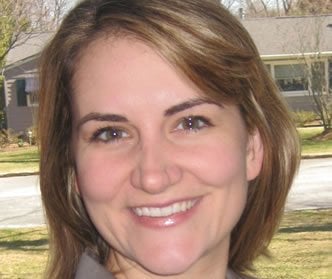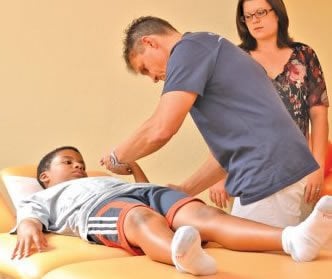The first article in this series was intended to be a brief overview of the admissions process for physical therapy programs. Part 2 will focus on some of the specifics of the physical therapy application and admissions process.
College Major and Course Prerequisites
Physical therapy programs do not require a specific major. Applicants are free to major in any area they wish, but some of the most common majors of physical therapy students include kinesiology, biology, psychology, and exercise science. When you select a major, choose something that you are passionate about and will enjoy, but that will also help you complete your prerequisite coursework.
Prerequisites vary considerably among PT programs, so visiting the websites of the programs you wish to attend is highly recommended. Nevertheless, most programs will have some in common. Possible prerequisite courses may include: Anatomy and Physiology, Exercise Physiology, Biology, Chemistry, Physics, Psychology, Kinesiology, Mathematics, Medical Terminology, English, Humanities and Social Sciences.
Many schools will allow substitutions of these courses with acceptable and similar courses you have taken. Again, you must check with the individual programs concerning course waivers or substitutions. Also, be careful about which Anatomy and Physiology course you take, as some programs require that you take the individual courses. You will likely have to take the labs for each class. If you take any of these courses at a community or junior college, ensure that your intended programs will accept those credits!
Most schools will allow one or two incomplete or ongoing courses after submission of your application. You’ll be required to successfully complete any incomplete coursework before you enroll.
Other Admissions Requirements
Minimum GPA
The vast majority of programs have minimum grade point average (GPA) requirements, and this varies by program. The average GPA of applicants in the 2009-2010 school year was 3.47 and this number is rising gradually. Your GPA will be automatically calculated by PTCAS or the school to which you send your transcripts.
Graduate Record Examination (GRE)
With the advent of the new GRE, pre-PT students are confused about which to take. Which is easier? Which one should I take? Is the new GRE easier to study for? These are some of the questions applicants have concerning the GRE’s change in format. To see the difference between the old and new, visit ETS’s page: What you need to know about the revised GRE.
Minimum GRE scores vary from program to program. To stay competitive, it is recommended to score at least above an 1100. That number is my minimum recommended value for a score on the GRE. Try to score high on the Analytical Writing part, too—at the very least, above a 4.5. Many schools will focus on your AW score to determine your proficiency in communicating. Take the GRE during your junior year or during early summer before senior year to reach the deadline and to perhaps give you a chance to retake the test if needed.
Official Transcripts
You’ll need to submit these with your application and then, if accepted, update them once all your requirements are completed. Send these in as soon as you can, usually after the posting of your degree on your transcript after graduation. Keep in mind that some colleges do not post degrees until 1-2 months after graduation. Check with your specific college about graduation approval and degree posting to determine when you will be able to send in transcripts to PT programs.
Physical Therapy Volunteer Experience
PT programs require you to earn a certain number of volunteer or paid experience hours prior to applying. This will demonstrate your readiness, understanding, and passion for the field of physical therapy. The minimum required experience varies form program to program, so check their websites about this. Try to aim for more than 120+ hours in a variety of settings. As a rule of thumb, hours spent in an acute care hospital setting are best.
Try and get your hours completed as early as possible. You could start volunteering during junior year of college to amass a reasonable amount of hours of experience. Contact local hospitals and clinics via phone or speak directly to the hospital or clinic volunteer director. Email is an option, but telephone and direct contact are probably best. Try to figure out the number of hours you want to spend at the facility and estimate how many hours and days per week you would like to do, as you may be asked about this when you contact the facility.
Letters of Recommendation
You may obtain your letters from a combination of physical therapists, professors, or employers. These letters of recommendation or evaluation will measure your maturity, dependability, dedication, compassion, communication skills, leadership, and any hands-on experience. Give your physical therapist, professor, or employer at least four weeks to complete the LORs and submit them either via PTCAS or in a sealed envelope with a signature over the seal (for those programs that do not participate in PTCAS).
Interviews
Interviews are probably the hardest part of the admissions process. Your interviewers will evaluate a variety of things, such as your reasons for choosing physical therapy, any experiences related to physical therapy, communication skills, motivation and passion, professionalism, group interaction, problem-solving abilities, and overall compatibility with a career in physical therapy.
To prepare for your interviews, keep up to date with current health care issues, especially those pertinent to physical therapy. You can do this by visiting the American Physical Therapy Association web site or perusing the Physical Therapy boards here on SDN. Your research should also raise certain relevant questions which you may ask the interviewer. The most important thing in an interview is to be yourself. But humble, but confident!
If you are able to schedule your own interviews, schedule them as early as possible, especially if you’re applying to a school with rolling admissions.
Personal Interest Letter
If your program does not require interviews, then they will most likely require an interest letter. These mostly ask the same questions that are addressed in an interview, such as why you chose physical therapy, experiences that led you to choose physical therapy, and your potential contributions to the field upon graduating. If your program does not require interviews, then your interest letter will be the heart of your application, as this is where the admissions committee will be able to hear your voice and learn about your experiences.
As you write your interest letter, make it personal and really try to explain your reasons for choosing physical therapy. What sets physical therapy apart from the rest for you? How did specific experiences affect your decision? What did you learn during your observations? How have your volunteer experiences influenced your perspective(s) on physical therapy? How did the activities you participated in during college help you develop and cultivate your interest? What about you? What do you have to offer to the field of physical therapy and to those who you will one day treat? These are some of the questions you should aim to answer; this is also applicable to interviews.
Be precise and prompt (length restrictions), but ensure the cohesiveness of this part of your application.
CPR/AED Certification
Many programs will require you to be certified in CPR for infant, child, and adult and AED before enrollment into the program. Information concerning this can be collected from the American Heart Association’s website on their CPR certification classes: AHA’s CPR & First Aid Training. This is usually a four hour class that will cover CPR and AED for infants, children, and adults. Check with your program to see which certification they accept (Red Cross or American Heart Association). There have been recent changes to methods of CPR and AED administering, so if you are already certified, it may be best to renew your certification.
International Students
International students from a country where the official language is other than English will be required to have completed the Test of English as a Foreign Language (TOEFL) and TSE (Test of Spoken English) tests. These requirements vary from school to school, so check with the program your interested in to make sure you take the correct forms of the tests.
Submission of the Application and the Waiting Game
When you’ve finally gathered all your application materials together, it’s time to reread and ensure the accuracy of every part of your application. All of your materials should be well organized. After you’ve finalized your materials, you should submit them as early as possible. Aim for mid to late August and submit everything. Don’t forget the letters of recommendation from your references! Call them to make sure that they have completed and submitted the letters of recommendation. Then make sure to thank them.
After you submit, the waiting game begins. If you’ve applied early, it may not be long. I submitted my applications the last week of August 2010, and got a response from both the schools I applied to by late September 2010. So, it never hurts to apply early. You should then get a response from the school that they have received all your application materials after a few days. If not, kindly and patiently contact the admissions staff concerning the status of your application. Be courteous to them as they handle a large volume of paperwork, electronic applications, and calls from applicants just like you.
Good luck with this exciting process! For more information on Physical Therapy and Physical Therapy education visit http://apta.org/ and the SDN Physical Therapy (DPT) Board.
Photo Credit: Ignacio Rubalcava, USAG Baumholder
Calvin Gomes receives physical therapy from Roland Kaidl at a Baumholder medical facility in Germany as Michelle Merson and Janine Berry, patient liaisons from the Baumholder Health Clinic, and Gomes’ mother, Yaelmie, look on.
Read more








